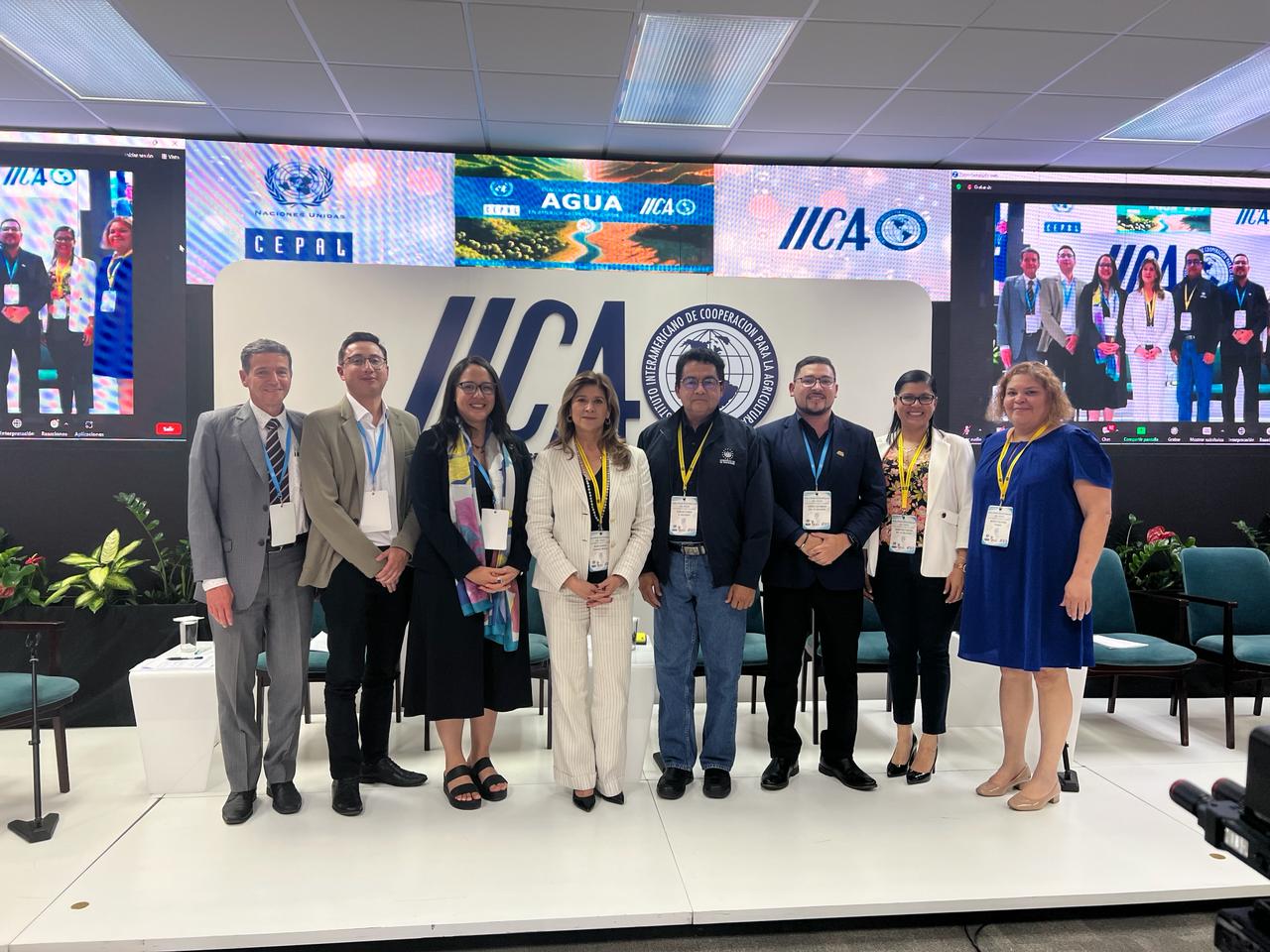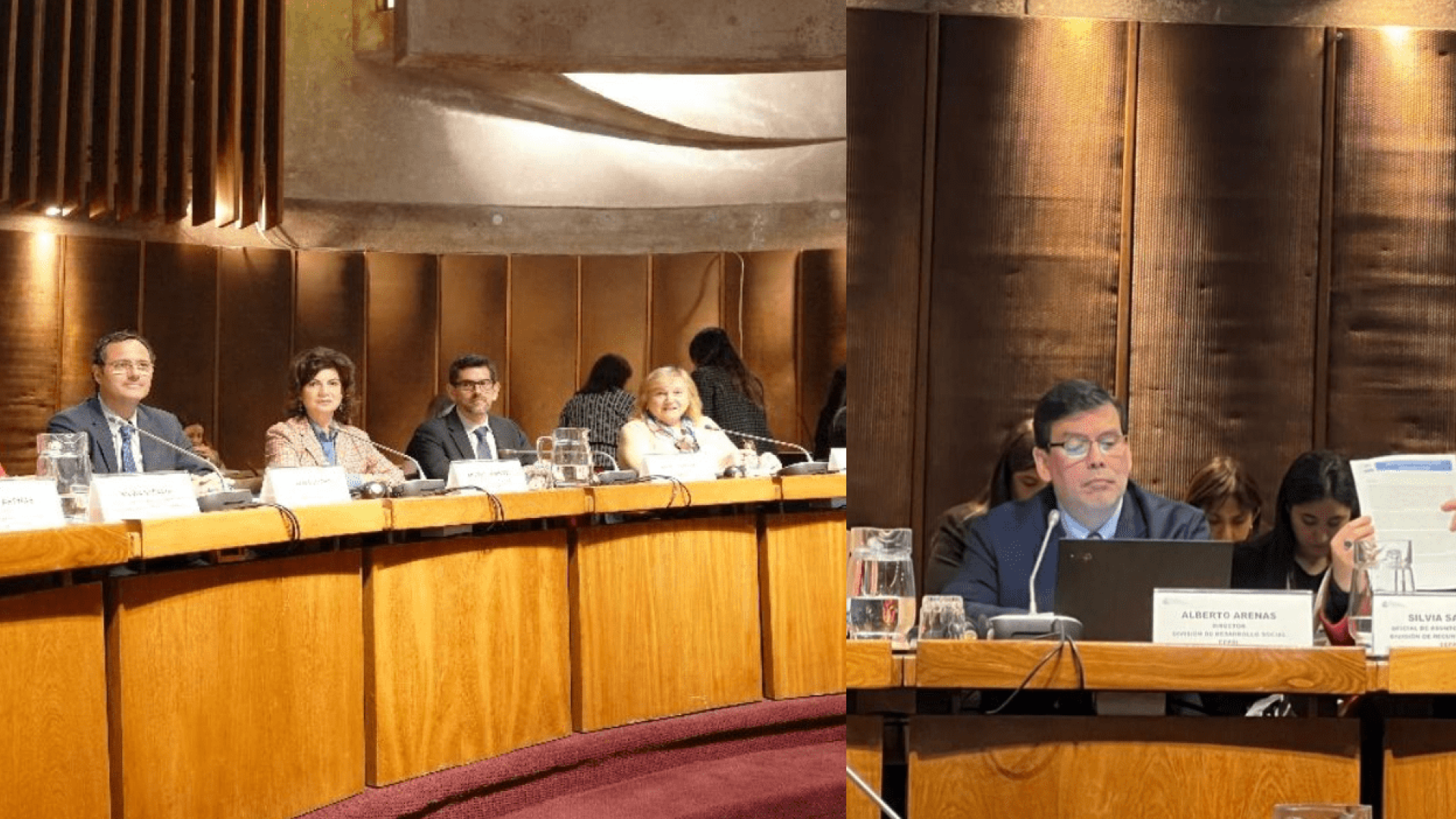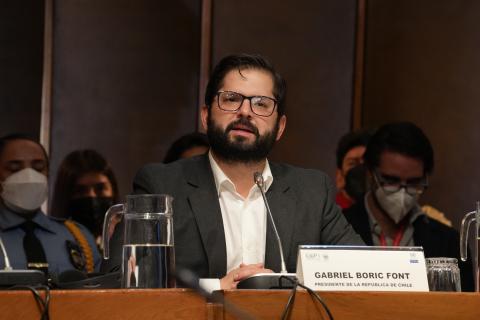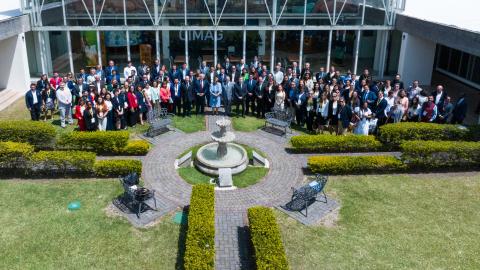Briefing note
Session 7 aimed to present a roadmap for transforming public policies and regulatory frameworks that allow for the expansion of investment opportunities in circular systems at various scales and with a multi-actor approach.
- Ms. Blanca Antizar, director of Consulting at Isle Utilities, emphasized the need to transform challenges into opportunities, highlighting the circular economy as an essential tool to maintain the value of resources in the market, reduce environmental impact, and ensure water security.
- The panel of experiences shared success stories from wastewater treatment plants in large cities, demonstrating the feasibility and benefits of adopting circular practices. Ms. Marilyn Marixenia García-Paredes from the PTAR Juan Díaz, Mr. Orlando Salgado from Aguas Andinas, and Ms. Natasha Avendaño from the PTAR Salitre highlighted initiatives for water reuse, biogas production, and biosolids utilization.
- The presentation of Methane Recovery Initiatives in WWTPs in Small Municipalities of Mexico and El Salvador began with the intervention of Mr. Alfredo Montañez, ECLAC, who explained the methodology and results of the Circular Economy project that ECLAC is implementing in El Salvador, Panama, and Mexico. Next, Ms. Silvia Chávez, CONAGUA, Mexico, highlighted that the project achieved its objectives within a broader collaboration, emphasizing the importance of local acceptance to ensure sustainability and the impact of access to drinking water on health and economic development. Subsequently, Mr. Carlos Flores, Representative of PTAR Metapán, El Salvador, presented the wastewater treatment project in Metapán as an inspiring example for others, despite financial and billing challenges. The sustainable and collaborative approach was emphasized through municipal funding and the municipality's commitment to construction and operation. Next, Mr. Jorge Castaneda, ASA, El Salvador, explained how ASA leads the transition to the circular economy, demonstrated by the rapid conversion of the proyect "Escuela Azul" into a sustainable model, and announced plans to collaborate with financial actors in the implementation of circular economy approaches in the WWTP of Metapán. Finally, Ms. Jennifer Fuentes, FIDEAGUA, described how they provide technical, administrative, legal, and financial assistance for drinking water and sanitation projects in Honduras and El Salvador, ensuring their sustainability, and mentioned that the project in Metapán could access impact investment funds with favorable conditions through FIDEAGUA.
- In the roundtable on financing mechanisms, Mr. Sergio Campos from the IDB and Mr. Franz Rojas from the CAF discussed the need to adopt innovative approaches in financing circular economy projects, including promoting the private sector and adopting technologies that allow for the circular economy. Here, Ms. Mónica Altamirano, Partner at the European Consortium Network NaturePlus, highlighted the importance of Public-Private Partnerships (PPPs) and provided specific.
- The discussion on regulatory frameworks included the participation of Ms. Ruth Quevedo from CRA Colombia, Ms. Mayela Guiteria from CONAGUA Panama, and Mr. Mauro Gutiérrez from SUNASS Peru, who shared their experiences in aligning regulations with the principles of circular economy and highlighted the importance of multisectoral cooperation and public awareness. Mr. Ignatius Jean, from CAWASA, presented plans for wastewater treatment, moving from secondary to tertiary level for reuse in irrigation, as well as the multinational partnership in the Caribbean they lead to develop natural solutions in wastewater treatment.
- Mr. Alex Pires from the Global Wastewater Initiative of UNEP and Ms. Virginia Barbancho from CODIA emphasized the relevance of global and regional initiatives in promoting the circular economy in the sanitation sector.
This session made it clear that, while there is a strong awareness of the importance of the circular economy for the future of sustainable water management, there is still a long way to go in terms of knowledge, policy, and practical implementation. Increasing investment in innovation, strengthening governance, and developing policies and regulations focused on water circularity are critical steps to ensure a future where everyone has access to clean water and sanitation, in line with global efforts to achieve SDG 6.
The session was concluded by Ms. Silvia Saravia, Economic Affairs Officer in charge of water issues at ECLAC, who summarized the key points and reaffirmed the commitment to work towards sustainable and circular management of water and sanitation in the region.
The session concluded with a call to action to foster collaboration, innovation, and the adoption of policies and practices that allow progress towards a circular economy in the sanitation sector in Latin America and the Caribbean.
Participation of the in-person and virtual audience
Throughout the session, several interactive activities through the Slido platform included a series of questions to gather the opinions and reflections of the audience of the Regional Water Dialogues. This allowed the inclusion of the participation of attendees in the room, but also those who joined virtually. More details on the responses obtained are mentioned below.
Participants from several countries in the region took part in the session, with the majority of participants from Colombia, Peru, Mexico, Costa Rica, Ecuador, and Guatemala. They mainly came from academia (27%), the public sector (27%), civil society (15%), the private sector (13%), NGOs (8%), international organizations (6%), and others (4%). In this session, representatives of both genders actively participated, with a distribution of 58% women and 42% men. This distribution reflects a continuous commitment to gender equality and inclusion in the dialogue on water resources and sustainability.
During the session, the first question posed was "Do you know of any incentive policy or regulation that promotes innovation and the use of technologies that use principles of water circularity in your country?", where an evident concern emerged: a significant 58% of attendees admitted to being unaware of policies, incentives, or regulations in their countries that promote innovation and the adoption of technologies following principles of water circularity. This data highlights the critical need for greater dissemination and development of policies that promote innovative and sustainable water management practices.
On the other hand, the audience was asked, "Do you think that incorporating circular economy principles into the drinking water and sanitation sector significantly propels the achievement of SDG 6 in the region?" Nearly all participants (98%) agreed that incorporating the circular economy into the drinking water and sanitation sector is crucial for making significant progress towards achieving Sustainable Development Goal 6. This goal focuses on ensuring the availability and sustainable management of water and sanitation for all, underscoring the belief that circular approaches are essential for improving the efficiency and sustainability of water resource management.
Finally, participants addressed the question, "What are the barriers to overcome for implementing circular economy projects for drinking water and sanitation?" The challenges to implementing these changes are not minor. Participants identified "Lack of political will" and "Weak governance or limited regulatory frameworks" as the main obstacles. These findings highlight the urgency of addressing these barriers through a joint effort among governments, the private sector, civil society, and communities. Improving governance, developing robust regulatory frameworks, and fostering strong political will are essential steps to facilitate the transition towards more sustainable and circular water management practices.
For more information:
-
Hear the opinion of experts that attended the Regional Water Dialogues 2024
-
Read the opening words of the Executive Secretary of CEPAL, José Manuel Salazar-Xirinachs
News:
Publications of interest:



